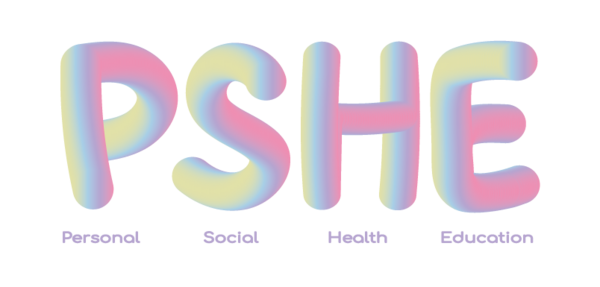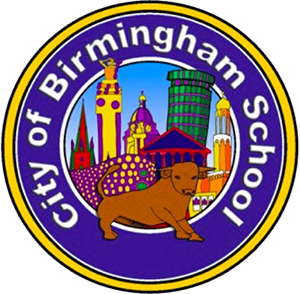
What is PSHE?
PSHE stands for Personal, Social, Health and Economic Education. This school subject is where pupils develop their knowledge, skills, and characteristics that they need to manage their lives now and in the future. These skills and characteristics will help pupils to stay healthy and safe, whilst also preparing them for life and work in modern Britain. PSHE will aim to help pupils understand how they develop both personally and socially, whilst tackling many of the Spiritual, Moral, Social and Cultural (SMSC) issues that are a part of growing up.
It is through PSHE that your child will learn about bullying, Citizenship, drugs education, careers, mental and emotional health, well-being and relationships and sex education (RSE).
At City of Birmingham School (COBS) our PSHE programme of study will also aim to develop your child’s skills and attributes such as resilience, self-esteem, risk management, working as part of a team and critical thinking.
The topics covered within PSHE cover the three core themes: Health and well-being, living in the wider world and relationships. Within these three core themes are the following topics: -
- Drugs Education
- Bullying
- Self-esteem
- Radicalisation and Extremism
- Money/Financial safety
- Self-harm
- Child Sex Exploitation
- Body Image
- Careers
- Relationships and Sex Education
- County Lines
- Identity and Values
- Gangs/Crime
- Internet Safety
- Social media/music
- Domestic Violence
- Opinions e.g., Racism
- Mental Health
CURRICULUM TIME
In KS3 (Key Stage 3) pupils currently receive two 50-minute lessons and one to two 15-minute tutorials a week. In KS4 (Key Stage 4) pupils currently also receive one 50-minute lesson and one to two 15-minute tutorials a week. There is also a vast array of PSHE workshops organised throughout the academic year. This includes workshops with Umbrella who will deliver sex education and will provide free safe protection should pupils request it.
DEPARTMENTAL STAFF
KS3 pupils receive 76 PSHE lessons over the academic year, with an additional 38 fifteen-minute slots in tutorial time. While KS4 will receive approximately 38 lessons of PSHE over the academic year, with an additional 38 fifteen-minute slots in tutorial time. Most of the content is delivered by a few key staff in each campus. The PSHE Subject content is reviewed and changed by Sunita Kellay (Secondary PSHE Curriculum Lead). Content reviews are based around the current trends and needs of COBS Pupils – Our safeguarding Lead and Deputy Head, Sunil Vyakaranam, carries out research and analyses pupils’ behaviour and expressed values, beliefs and opinions, this data research allows us to focus on needs, beliefs, and behaviour of our pupils at COBS. Historical data allows us to monitor the impact of our intervention through PSHE.
PSHE Staff Team
 Mrs Kellay - Secondary PSHE Lead
Grove Campus, Lime Grove, Balsall Heath, Birmingham, B12 8SY |
PSHE teachers across City of Birmingham School
STAFF NAME AND KEY STAGE |
CAMPUS |
|
Mr E. Gill (KS4)
Miss A. Peterkin (KS4)
|
Kings Campus Door B - Jaffray Building Fentham Road Erdington Birmingham B23 6AE Telephone: 0121 464 7623 |
|
Mr Joseph Hill (KS3)
|
Grove Campus Lime Grove Balsall Heath Birmingham B12 8SY Telephone: 0121 303 1276 |
|
Mrs E. Davies (KS3)
|
Millpool Campus 2 Millpool Gardens Kings Heath Birmingham B14 5EU Telephone: 0121 464 3023 |
|
Louise Maher (KS4)
Eleanour Thomas (KS4)
|
Firsbrook Campus 50 Firsby Road Quinton B32 2QT Telephone: 0121 464 6230 |
|
Mrs N Hamilton (KS3) |
Oxted Hall Campus Jaffray East Building (Door E) Fentham Road Erdington Birmingham B23 6AE Telephone: 0121 464 7907 |
|
Mrs S Kellay (KS4) |
Link Campus Jenkins Street Small Heath Birmingham B10 0QH Telephone: 0121 464 3510 |
KS3 (Years 7, 8 + 9) PSHE Curriculum Overview
The following are stand alone lessons, which can be used in any order (dependent on the need of COBS pupils). They all fall into the PSHE Associations recommended three categories.
These are lessons that are all available at www.psheresources.com or the EC Resources TES store
|
Health and Well-being |
Living in the Wider World |
Relationships (RSE) |
|
The dangers of cigarettes and alcohol
What is vaping and is this as bad as smoking?
FGM – what is this and why is this so dangerous?
Energy drinks – what is the big deal about them?
Why do people take illegal drugs and what the law says about them
What is self-harm and why do people do this? |
How does knife crime impact upon our communities, why do teens get involved and what are the consequences? How does the law deal with young offenders? What are savings, loans and interest? Stereotyping, discrimination and prejudice- Racism focus
LGBT – Homophobia
Employability skills – preparing for and applying to the world of work and careers.
What skills do we need to develop for the work environment? |
Bullying V’s Conflict
Cyber Bullying – Why do people bully online?
How can we prevent radicalisation and recognise the signs of extremism?
Who are extremist groups and why are they so dangerous?
Where does extremism come from?
What is Domestic Violence and abusive relationships?
CSE – How are children and young people lured into dangerous relationships and what do these look like?
Body Image and the media Part 1 – focus on boys
Body image and the media part 2 – focus on girls |
KS4 (Years 10 + 11) PSHE Curriculum Overview
The following are stand alone lessons, which can be used in any order (dependent on the need of COBS pupils). They all fall into the PSHE Associations recommended three categories.
These are lessons that are all available at www.psheresources.com or the EC Resources TES store
|
Health and Well-being |
Living in the Wider World |
Relationships (RSE) |
|
What are hate crimes and why do these still happen?
Social Media and Self-Esteem
Internet safety – the dangers of excessive screen time
Online gaming and Gambling
Drugs – Cannabis, Shisha and spice, what are these and are they really dangerous?
Binge Drinking – What are the risks and why do people do it?
Why do some people commit suicide?
How can we manage our grief and bereavement?
|
What is overt and covert racism and why are people still prejudiced?
What is multiculturalism?
Internet safety - Cyber bullying
Internet safety – The Dark Web
What is right wing extremism?
Why do some religious people become terrorists?
Applying for College and University (Year 11)
How can we successfully prepare for a job interview?
How to write a good CV
Crime, gangs and County Lines |
Why do sexism, gender prejudice and stereotypes still exist?
Gender and Trans identity LGBT+
Bullying – Body shaming
Bullying Vs Banter
Why is it essential we know about consent, rape and sexual abuse?
What are forced and arranged marriages and what do we need to know?
Revenge Porn – what is this and how can we prevent ourselves from being victims?
Relationship types and sexuality
What is Chem Sex and what do we mean when we talk about safe sex? (Year 11) |
Pupil PSHE Links
|
Here you can access childline for free. It is free, private and confidential service where you can talk about anything you want to. You can get help, advice and support 24hrs a day. |
|
|
Talk to Frank website is where you can find everything you need to know about drugs, their effects and the law. Talk to frank offer facts, support and advice on drugs and alcohol. If you are worried about a friend contact Frank today. |
|
|
Umbrella provides free and confidential sexual health services in Birmingham and Solihull. This service is for people of all ages, genders and orientations. |
|
|
Did you know that 3 children in every classroom have a mental health problem? This link will enable you to gain support and advice if you are worried about your own or someone else’s mental health or behaviour. |
Parent PSHE Links
|
Welcome to the ‘Thinkuknow’ website. This is an education programme from NCA-CEOP, which is an organisation that helps protect children both online and offline. Through this link you will be able to explore websites for advice about keeping your child safe when they are using a phone, tablet or computer. Most importantly there is a place here anyone can use to report if they feel uncomfortable or are worried about someone they are chatting to online. |
|
|
Here at the PSHE Association, parents and carers can find out how PSHE education can help their child. You can find out why PSHE education is so important, what evidence there is that it works and how you can support your child’s PSHE education. |
|
|
Net Aware is produced by O2 and NSPCC. This link will take you to a guide on the most popular sites, apps and games that young people use. It is very simple to use and will help you stay up to date with your child’s online world. |
|
|
Did you know that 3 children in every classroom have a mental health problem? Young minds put children at the heart of tackling this problem. If you are worried about a child or young person’s behaviour or mental health, you can use this link to access help, support and advice. |















